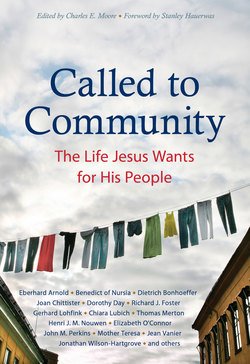Читать книгу Called to Community - Thomas Merton - Страница 5
На сайте Литреса книга снята с продажи.
ОглавлениеForeword
Stanley Hauerwas
Community is dangerous. This is easy to forget at a time when we often hear calls for more community. Of course, it’s quite understandable that many people today feel the need for it. After all, we live in a social order that has confused freedom with the isolation of the self. We may think we know one another, but our “knowing” only intensifies our isolation from one another. This is because, although we bump up against one another, we share no common story and no corresponding judgments about what is true, good, and beautiful. As a result, we become strangers to ourselves and to those we call friends. In such a social order, people too often confuse community with being a crowd. And crowds are intrinsically dangerous.
We live in a time when people think they should have no story other than the story they chose for themselves when they had no story. The story they chose is, they think, the story of freedom. The only problem with this belief is that none of us actually did choose this particular story. As a result, lives lived according to this false story are subject to self-deception and self-hate. Lives so constituted are often quite destructive for any attempt to sustain community life across time.
I began observing that the loneliness created by such an understanding of freedom and autonomy produces a hunger that can be dangerous – and hunger is the right word, indicating as it does the physical character of the desire and need to touch another human being. That is why Alasdair MacIntyre, the great moral philosopher, resists being called a communitarian. MacIntyre resists calls for community because he fears that in this place and time such calls are bound to lead to nationalistic movements. Those who hunger for community should never forget Nuremberg. I share MacIntyre’s worry that the label “communitarian” does little to help us understand what kind of community we ought to desire.
All the more, how fortunate we are to have this book! This is not a book that celebrates community as an end in itself. It is written by veterans of community living who know full well the pathologies of community life. I suspect these reflections will make many readers question their assumption that they are called to community. The stark realism of these essays makes clear that when we are dealing with people we must be ready to confront one another with truths about ourselves that we seldom want to acknowledge.
But interestingly enough, the very fact that such confrontation is required is why we cannot live without community. Therefore this book is a treasure of wisdom gained by those who have discovered the necessity of community for our being human.
I can only hope that it will be widely read, because I am certain that contained in this book is the future of being Christian. ◆
